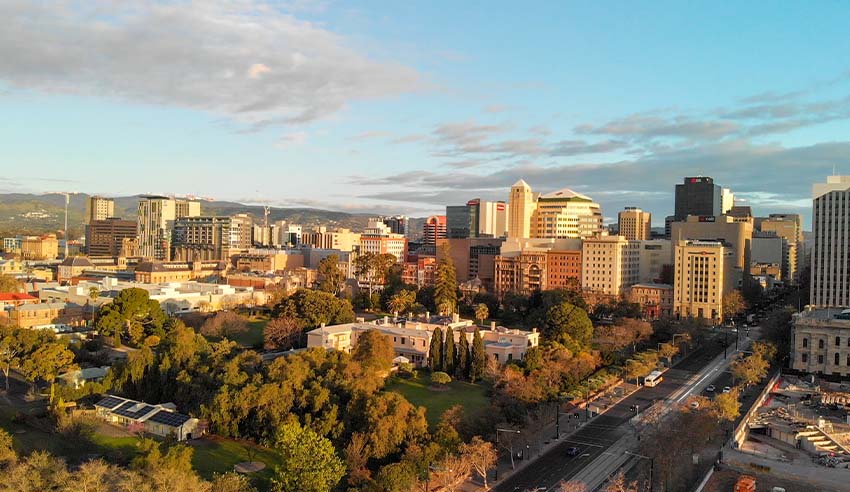Ahead of the next state election, the South Australian Law Society has made a number of key asks that include legislative changes and increased funding. It also took aim at the current government’s “unprecedented use” of state powers during the pandemic and its tendency to rush reforms through without appropriate scrutiny.

Due to take place next March, the South Australian elections will come amid the state’s efforts to recover from the global pandemic and the recent months’ upheaval within the government that most recently included a coup by secret ballot and an inquiry into its Attorney-General, Vickie Chapman, over conflict of interest claims.
Its key election issues cover a broad range of issues but can essentially be boiled down to two propositions. First, that the community should not face unfair barriers to access their legal rights and, second, that the community has a right to expect Parliament to be transparent to ensure its decisions are in the public interest.
In making these asks, the Law Society reflected on the current government and its commitment to the legal profession and to the justice system. This year, the Law Society noted, “significant reforms have been implemented” across the board that did not undergo “the level of scrutiny that the community should expect”.
An example of this was a “major amendment” to the impairment assessment guidelines, “which significantly alter the state’s workers compensation scheme”. The changes were made with little stakeholder or public consultation, the society found. This was the same for changes to the ICAC legislation, which were also found to have been “rushed through parliament” without an opportunity to present evidence.
The Law Society added it had seen the “unprecedented use” of state powers to issue public orders in response to the COVID-19 pandemic. Although it admitted that the powers were used to keep residents safe in “extraordinarily challenging circumstances”, the suffering, confusion and uncertainty that came with these powers “suggest we need to learn from these experiences” for future planning.
Additionally, there need to be legislative tools to handle the crisis of this nature, the society said. It is concerned that some of the privacy concerns relating to QR-code check-ins and home quarantining remain a “live issue”, and it’s now more important than ever “to strengthen privacy protections” for South Australian residents.
Then there’s the long-standing issue of legal assistance funding and court fees. While there are areas of justice that need greater investment “to ensure people can access the legal assistance they need”, the Law Society said there needs to be more clarity around how financial decisions are made by the government in these areas.
“For example, on what basis does the state calculate the funds that are allocated to legal aid? Is there a publicly available analysis on the level of legal need in South Australia that informs government funding decisions? Also, by what methodology does the government set court fees? When the government collects court fees, how much does it reinvest back into courts?” The Law Society questioned.
In addition to supporting the Fidelity Fund, the Law Society has requested the next government promises to address issues such as the number of children in state care, the Youth Court’s reunification and raising the age of criminal responsibility.
“The Society’s key asks are relatively modest in terms of the allocation of resources to vital institutions,” the Law Society commented in its statement. “But addressing these asks will help move us towards a society where everyone has access to justice, and proper accountability and integrity mechanisms are in place to ensure elected representatives make decisions in the best interests of the public.”
What the legal professions’ key asks are
In addition to those touched on above, the Law Society has requested that the next government consider a full review of legislation that specifically deals with responding to a pandemic, introduce new laws that allow victims of serious invasions of privacy to seek compensation and establish a scrutiny of bills and delegated legislation committee within the South Australian Parliament to oversee all these changes.
To ensure transparency, it requested a review of the Subordinate Legislation Act 1978 with a view of raising the standards and requirements for making delegated legislation. It also listed proper resourcing of committees tasked with reviewing proposed legislation and the implementation of a parliamentary policy to ensure public consultation on all proposed legislation to establish an agreed framework.
In the wake of the ICAC reforms, the new government should conduct a consultative review of the Public Interest Disclosure Act 2018. Additionally, there should be a full review involving community and stakeholder consultations as to the scope and operation of the Spent Convictions Act 2009, with a view of developing a new bill.
In terms of funding – and on top of a commitment to the Fidelity Fund – the Law Society requested increased funding for the Legal Services Commission that “enables the commission to fund legal aid matters for all those on or below the poverty line”. It should also provide funding for the provision of representation for people subject to guardianship, medical treatment or residence orders in SACAT.
To assist with distributing the funding, the Law Society requested “publicly available assessments of legal need in SA, broken down into state and commonwealth matters, to inform the allocation of state funding to the Legal Services Commission, Community Legal Centres and the Aboriginal Legal Rights Movement”.
As for the justice system, the Law Society requested a policy that requires the government to publicly disclose the process by which court fees are determined and where the monies are allocated. Further, lowering the overall cost of court trial and listing fees, eliminating the court transcript fees and increasing suitable mediators.
